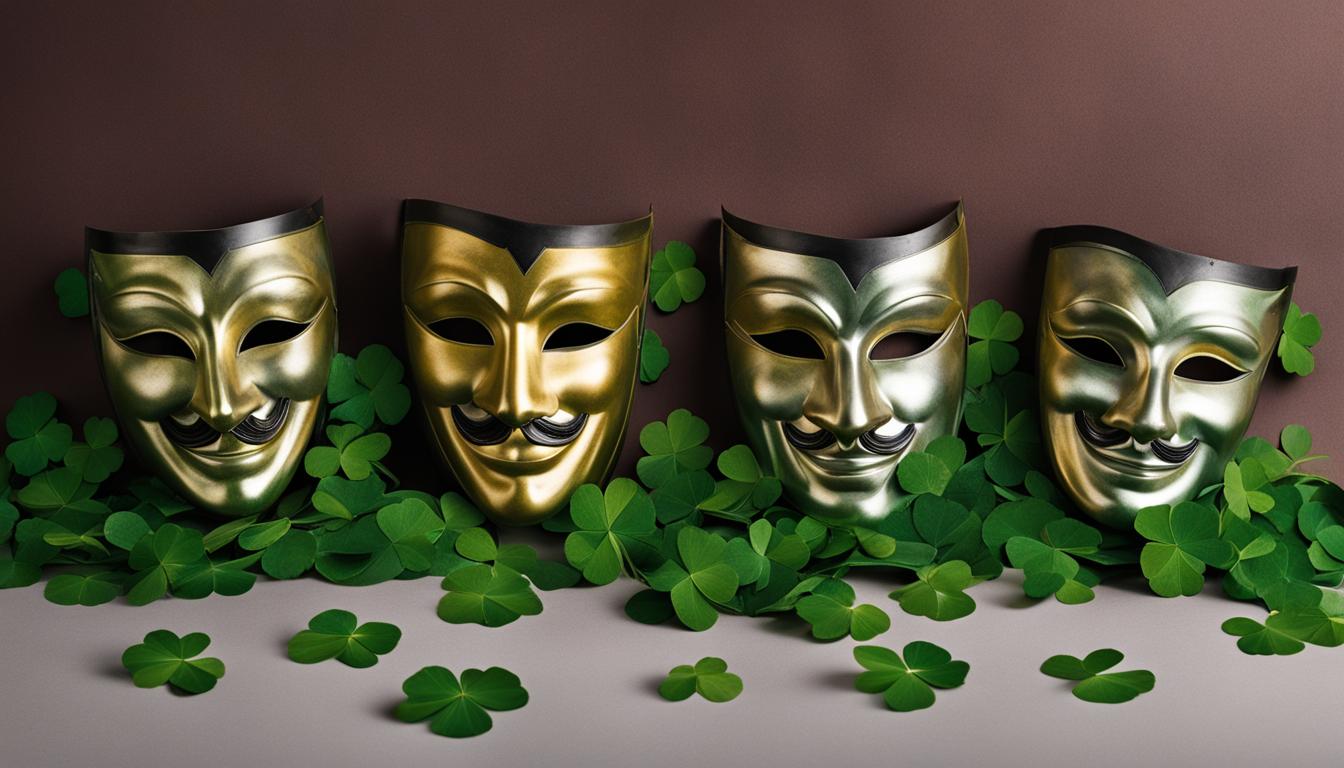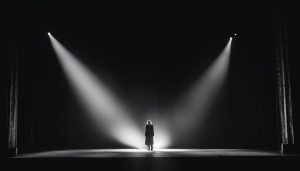In the theater world, there are various superstitions and traditions surrounding the act of wishing someone good luck for a play rehearsal. It is considered bad luck to say “good luck” directly, and instead, performers use phrases like “break a leg” or “merde” to confuse any mischievous theater spirits. The origins of these phrases are unclear, with theories ranging from diverting the attention of evil spirits to celebrating breaking through the backstage curtain. Regardless of the specific phrase used, it is important to show encouragement and support to those involved in the rehearsal process.
Contents
- 1 Theater Superstitions and Traditions
- 2 The Origins of “Break a Leg”
- 3 The Taboo of Saying “Macbeth” in a Theater
- 4 Theater Superstitions and Traditions
- 5 Theater Superstitions from Around the World
- 6 Conclusion
- 7 FAQ
- 7.1 Should you wish someone good luck for a play rehearsal?
- 7.2 What are some good luck wishes for play rehearsal?
- 7.3 How do you wish someone luck for a play rehearsal?
- 7.4 What are some theater traditions and etiquette?
- 7.5 What is the meaning and origin of the phrase “break a leg”?
- 7.6 Why is whistling considered bad luck in the theater?
- 7.7 What is the taboo of saying “Macbeth” in a theater?
- 7.8 What are some other theater superstitions and traditions?
- 7.9 What are some theater superstitions from around the world?
- 7.10 How can you send good luck messages to performers in theater?
- 8 Source Links
Key Takeaways:
- Avoid saying “good luck” directly in a theater setting.
- Use phrases like “break a leg” or “merde” to wish someone luck during a play rehearsal.
- The origins of these phrases are uncertain, but they serve to confuse mischievous theater spirits.
- Show encouragement and support to those involved in the rehearsal process.
- Theater traditions and superstitions add to the unique and magical world of theater.
Theater Superstitions and Traditions
The world of theater is filled with superstitions and traditions that have been passed down through generations. These practices add to the unique and magical atmosphere of the stage, with each theater having its own set of customs. Understanding and adhering to these traditions is not only a sign of respect for the art form but also a way to connect with the rich history of theater.
Theater Ghost Light
One of the most well-known theater traditions is the use of a ghost light. This is a single light left burning on an empty stage when the theater is not in use. The purpose of the ghost light is twofold: practical and superstitious. From a practical standpoint, the light ensures the safety of anyone entering the darkened stage by providing illumination. Superstitiously, the ghost light is believed to ward off mischievous spirits that may otherwise cause accidents or havoc in the theater.
“The ghost light represents the presence of the theater spirits. It’s like a beacon to guide them and keep them appeased.” – Theater Professional
The ghost light is typically placed center stage and is seen as a symbol of hope and resilience during times when the theater is not active. It serves as a reminder that even in the darkest moments, the magic of theater continues to shine.
Theater Good Luck Charms
In addition to the ghost light, many theaters have their own set of good luck charms. These can vary from a small trinket placed in the dressing room to a specific item worn by a performer during every show. Good luck charms are believed to bring positive energy and ward off any potential mishaps or bad luck.
| Good Luck Charms | Theater |
|---|---|
| A silver coin | London’s West End theaters |
| A peacock feather | Some Indian theaters |
| A red ribbon | Russian theaters |
These good luck charms vary by culture and theater, but their purpose remains the same – to bring luck and positive energy to the performers and the production as a whole.
So next time you step into a theater, take a moment to appreciate the superstitions and traditions that make this art form so special. From the ghost light illuminating the empty stage to the good luck charms carried by performers, these rituals connect us to the rich history and magic of theater.
The Origins of “Break a Leg”
The phrase “break a leg” is commonly used in the theater to wish someone good luck. While the exact origin of this phrase is uncertain, there are several theories. One theory suggests that “leg” refers to the curtain in the wings, and breaking through the barrier of the curtain symbolizes a successful stage entrance. Another theory links the phrase to John Wilkes Booth, the actor who assassinated Abraham Lincoln and reportedly broke his leg during the escape. Regardless of its origins, “break a leg” has become a widely accepted and humorous way to wish performers luck.
“Break a leg” is a phrase that has taken on a life of its own in the theater world. It’s a way to wish someone luck without actually saying the words “good luck,” which is considered bad luck in the theater. The phrase has become so ingrained in theater culture that it’s almost expected to be said before a performance. Whether it’s a small community theater production or a Broadway show, you’re likely to hear someone say “break a leg” backstage.
Despite its unconventional nature, the phrase “break a leg” has come to symbolize encouragement and support for performers. It signifies a wish for a successful performance and is often accompanied by genuine well wishes from fellow cast members and crew. So the next time you find yourself in a theater, remember to put aside the traditional notion of saying “good luck” and instead use the time-honored phrase “break a leg” to show your support for the talented individuals on stage.
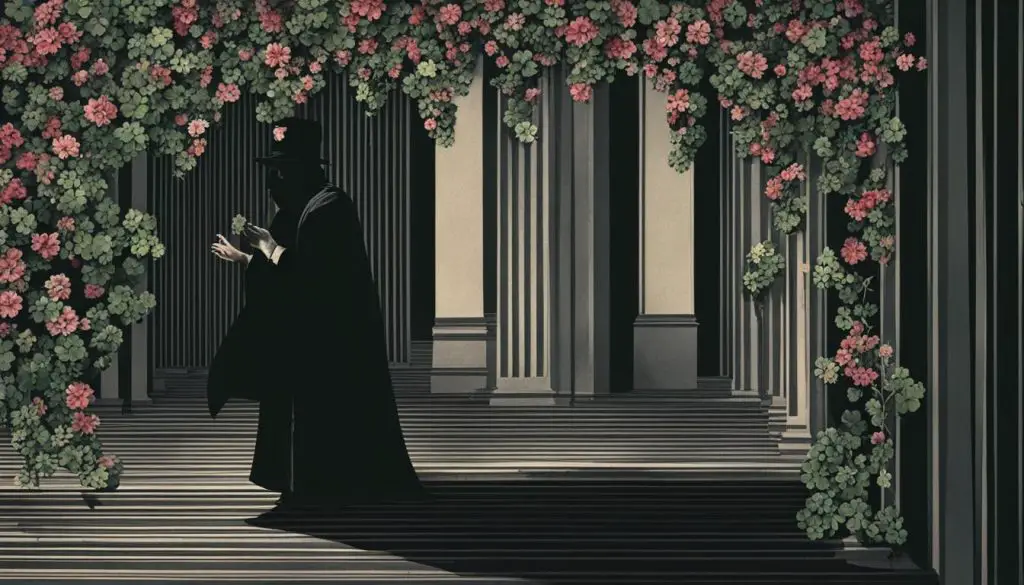
The Taboo of Saying “Macbeth” in a Theater
One of the most well-known theater superstitions is the taboo of saying the name “Macbeth” inside a theater. It is believed that speaking the name of Shakespeare’s play can bring bad luck and invite curses upon the production. In order to break the curse, a ritual must be performed, which can vary depending on local customs. This may involve leaving the theater, spinning around, spitting, cursing, and knocking before reentering. Many theater professionals take this superstition seriously and refer to the play as “The Scottish Play” to avoid any potential curses.
The origins of the “Macbeth” curse are rooted in superstition and a belief in the supernatural. Some theories suggest that the play itself contains elements of witchcraft and dark magic, leading to the belief that speaking its name can invoke negative energies. Others believe that accidents and mishaps during past performances of “Macbeth” have contributed to the superstition. Regardless of the reasons, actors and crew members are cautious when it comes to uttering the name of the infamous play.
“Macbeth doth Murder sleep,” says the character Lady Macbeth in Shakespeare’s play. This line has often been believed to carry a curse, and actors who have portrayed Lady Macbeth have experienced unfortunate circumstances. The superstition surrounding the play has become so ingrained in theater culture that many actors refuse to mention the name even outside the theater, for fear of attracting bad luck.”
The Macbeth curse ritual is taken seriously by many theater professionals, who believe that failing to perform the necessary steps can result in calamity. It is important to note that the taboo of saying “Macbeth” only applies within the confines of a theater. Outside of the theater, actors and theater enthusiasts discuss and analyze the play freely. However, inside the theater, the name is treated with caution and respect, as performers strive to avoid any potential negative consequences that might befall their production.
References
- Lewis, J. (2018, October 10). Breaking the Shakespeare curse: Why actors shouldn’t say Macbeth. Psychology Today. Retrieved from https://www.psychologytoday.com/us/blog/reel-therapy/201810/breaking-the-shakespeare-curse-why-actors-shouldnt-say-macbeth
- Shapiro, J. (2018, October 29). The Curse of the Scottish Play. The New York Times. Retrieved from https://www.nytimes.com/2018/10/29/opinion/macbeth-shakespeare-curse.html
| Table: Famous Examples of Macbeth Curse |
|---|
| 1. In 1849, during a performance of “Macbeth” at New York’s Astor Place Opera House, a riot broke out resulting in numerous deaths and injuries. |
| 2. During a 1937 production of “Macbeth” at the Old Vic in London, the actor playing Macbeth died suddenly, and the actress playing Lady Macbeth took her own life shortly after. |
| 3. The 1981 Broadway production of “Macbeth” starring Ian McKellen was plagued with accidents, including the set collapsing and actors sustaining injuries. |
| 4. In 1997, during a production of “Macbeth” at the Shakespeare Theatre in Washington D.C., a large supporting pillar collapsed, causing the performance to be canceled. |
| 5. Numerous actors who have portrayed the character of Lady Macbeth have reported experiencing personal misfortunes and setbacks during or after the production. |
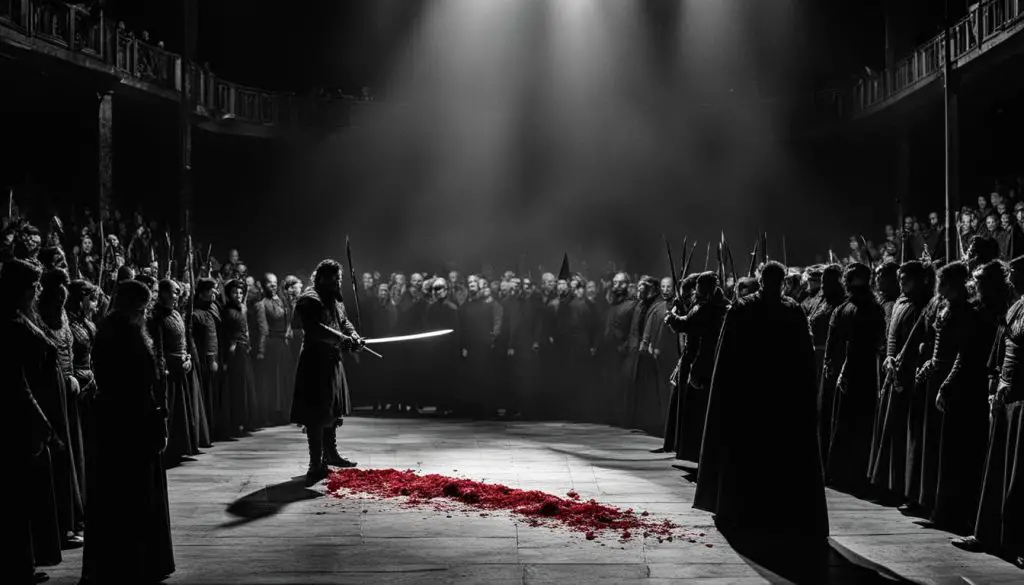
Theater Superstitions and Traditions
In addition to the well-known theater superstitions, there are numerous other traditions and beliefs that theater professionals adhere to. These customs add to the rich cultural heritage of the theater and contribute to its unique and magical world. Let’s explore some of these interesting practices:
Ghost Light
Theater superstitions often involve the use of a ghost light, a solitary lamp left burning on an empty stage. This light has both practical and superstitious purposes. It provides safety by illuminating the darkened stage, preventing accidents and falls for anyone entering the theater. Additionally, the ghost light is believed to ward off mischievous spirits that may inhabit the theater, protecting the space and ensuring a successful performance.
Avoiding the Peacock Feather
Another theater superstition is the belief that placing a peacock feather on stage brings bad luck. This superstition stems from the association of peacock feathers with the “evil eye” in various cultures. To avoid any potential jinx, theater professionals refrain from including peacock feathers in their sets or costumes.
No Flowers Before the Show
While it may seem customary to present performers with flowers before a show as a gesture of appreciation, in the theater world, this is considered bad luck. It is believed that receiving flowers before a performance can jinx the actors, leading to a less-than-stellar show. Instead, it’s best to save the floral gifts for after the production, to celebrate a successful performance.
| Theater Superstitions and Traditions | Purpose/Belief |
|---|---|
| Ghost Light | Provides safety and wards off mischievous spirits |
| Peacock Feather | Bringing a peacock feather on stage is believed to bring bad luck |
| No Flowers | Receiving flowers before a show is thought to jinx the performance |
These are just a few examples of the theater superstitions and traditions that are followed by professionals in the industry. From the use of a ghost light to the avoidance of certain objects and gestures, these practices add to the mystique and charm of the theater world. So the next time you find yourself attending a play or involved in a theatrical production, remember to respect and embrace these fascinating customs.
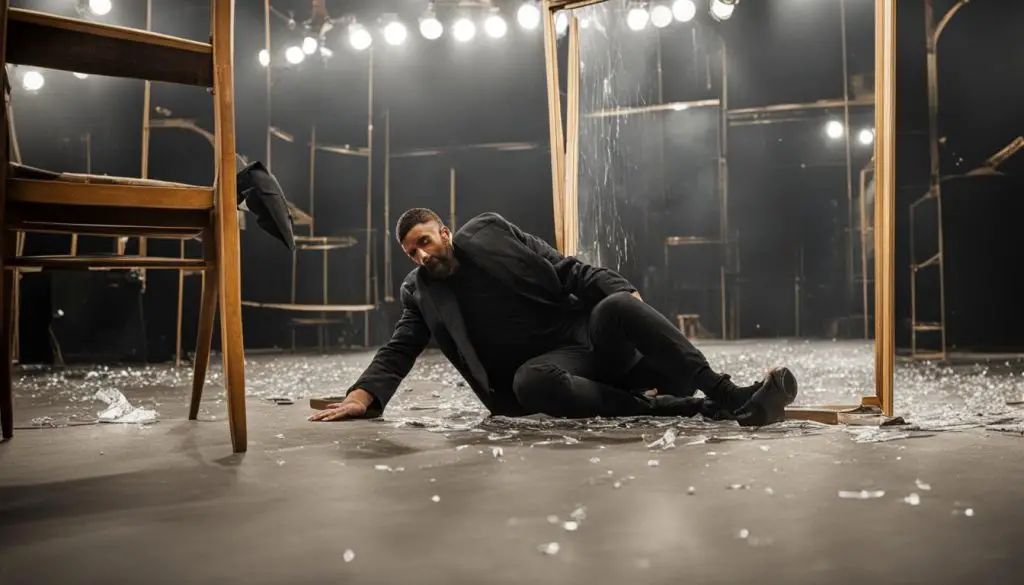
Theater Superstitions from Around the World
The world of theater is filled with superstitions and traditions that vary across different countries and cultures. From different sayings to unique rituals, these customs add to the rich tapestry of global theater traditions. Here are some fascinating examples of theater superstitions from around the world:
Theater Superstitions in Ballet and Spanish Theater
In the ballet world, dancers often say “Merde!” to wish each other luck before a performance. This French term, meaning “excrement,” is believed to bring good luck. Similarly, Spanish performers use the phrase “mucha” or “lots of shit” as a way to counteract any potential bad luck.
Opera Superstitions in Various Languages
Opera singers have their own set of superstitions and good luck sayings. In German opera, performers say “Toi toi toi” to ward off evil spirits. Italian opera singers, on the other hand, use the phrases “In bocca al lupo!” (meaning “in the mouth of the wolf”) and “Crepi il lupo!” (meaning “may the wolf die”) for good luck.
Theater Traditions in Different Cultures
Beyond sayings and superstitions, theater traditions also vary across cultures. For example, in Japanese theater, there is a tradition of giving a small gift, such as a fan or a mask, to express appreciation and support for performers. In India, traditional theater forms like Kathakali and Bharatanatyam are accompanied by intricate hand gestures known as mudras, which add depth and meaning to the performances.
These diverse theater superstitions and traditions reflect the unique cultural heritage of each country. They demonstrate the universal desire to bring luck and positive energy to the stage, ensuring successful and memorable performances for both the artists and the audience.
Conclusion
Theater traditions and superstitions surrounding wishing someone good luck for a play rehearsal add to the unique and magical world of theater. Whether it’s saying “break a leg,” “merde,” or another phrase, the intention is to bring luck and positive energy to the performers. These traditions have been passed down through generations, reflecting the deep-rooted respect and support within the theater community.
By adhering to these customs and sending good luck messages, you can show your appreciation for the hard work and dedication of those involved in the rehearsal process. It’s a way to send positive vibes and boost their confidence before they take the stage. Your words of encouragement can make a difference and contribute to a successful and memorable performance.
So, next time you have the opportunity to wish someone luck for a play rehearsal, embrace the theater luck traditions. Take a moment to send a heartfelt message, offer support, and let them know you believe in their abilities. It’s a small gesture that can have a big impact and make the theatrical experience even more special for everyone involved.
FAQ
Should you wish someone good luck for a play rehearsal?
Yes, it is customary to wish someone good luck for a play rehearsal to show support and encouragement.
What are some good luck wishes for play rehearsal?
Common phrases used in the theater to wish someone good luck include “break a leg” and “merde.”
How do you wish someone luck for a play rehearsal?
You can wish someone luck for a play rehearsal by saying “break a leg,” “merde,” or another phrase used in the theater.
What are some theater traditions and etiquette?
Some theater traditions include leaving a ghost light burning on an empty stage, avoiding saying the name “Macbeth,” and using good luck charms.
What is the meaning and origin of the phrase “break a leg”?
The exact origin of the phrase “break a leg” is uncertain, but theories suggest it represents breaking through the curtain and symbolizes a successful stage entrance.
Why is whistling considered bad luck in the theater?
Whistling is considered bad luck in the theater due to its historical association with confusing stage crews who used coded whistles for scene changes.
What is the taboo of saying “Macbeth” in a theater?
Saying the name “Macbeth” in a theater is believed to invite bad luck and curses. To break the curse, a ritual must be performed.
What are some other theater superstitions and traditions?
Other theater superstitions include avoiding placing a peacock feather on stage and refraining from giving flowers to performers before a show.
What are some theater superstitions from around the world?
In ballet, dancers say “Merde!” for good luck, while opera singers say “Toi toi toi” or “In bocca al lupo!” depending on their cultural traditions.
How can you send good luck messages to performers in theater?
You can send positive vibes and good luck messages to performers by using the theater traditions and etiquette of wishing them luck for their rehearsal or performance.

